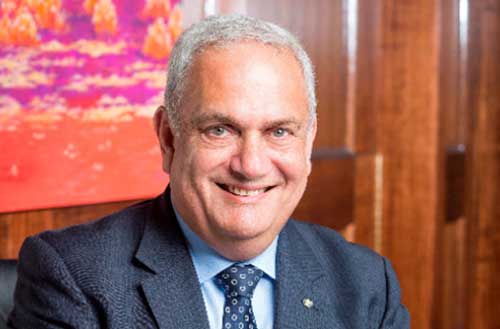Navigating your first board role: Philip Archer

We caught up with Philip Archer, Director of The Observership Program’s Board Search initiative. With more than four decades of executive search experience, Philip’s advice is gold for aspiring directors.
Know yourself, know your board
“Once you’ve identified a board you’re keen to join, the first step is doing your homework. And I mean on both fronts – yourself and the organisation you’re looking to join,” Philip says. He emphasises that understanding the board’s needs is crucial, but it’s a two-way street. You need to grasp the board’s direction and ensure it aligns with your own compass.
“Dig deep,” Philip advises. “Get your hands on the Board Director position description. Pore over annual reports. Review board minutes if they’re available. It’s about building a complete picture.”
But here’s the kicker – it’s not just about knowing the organisation. You need to know yourself inside out, too. Philip stresses the importance of value alignment: “Here’s what people often miss: How well do your purpose and values align with the organisation’s? Are you on board with where they’re steering the ship? That alignment? It’s make or break.”
Network like your board future depends on it (because it does)
Philip shares a cautionary tale: “I once had a candidate who was over the moon after meeting one board member. They thought they’d found their perfect match. But when they met the rest of the board and the CEO? Let’s just say it was a reality check.”
The lesson? Don’t put all your eggs in one basket. Try to meet multiple board members and, if possible, the CEO before accepting a position. It gives you a more realistic picture of the organisation’s culture and dynamics.
Philip adds emphatically, “Find yourself a mentor. Someone who’s been around the block a few times. Their insights can be a lifesaver when you’re navigating choppy waters.”
Embrace your unique story
For many of The Observership Program alumni, it’s their diverse backgrounds and fresh perspectives that make them attractive to boards. Philip’s advice here is crystal clear:
“Own your story. Be proud of what makes you, you.” He cautions, “don’t just swallow an organisation’s diversity spiel hook, line, and sinker. Dig deeper. Is their commitment the real deal, or just hot air?”
Tailor, tailor, tailor
When it comes to applications, Philip doesn’t mince words: cookie-cutter approaches won’t cut it. “You’ve got to tailor your pitch for each opportunity,” he insists. “Dust off that CV, spruce up that LinkedIn profile. Make them scream ‘I’m the missing piece to your board puzzle!'”
He also encourages graduates to consider more than just their list of qualifications and experiences. “Consider what makes you stand out as an individual,” he advises. “What are your unique strengths, perspectives, and qualities that set you apart from others in your field? These distinctive traits form your professional identity, or what some call your ‘personal brand.’ It’s like your professional personality – the special combination of skills, experiences, and characteristics that make you valuable in the workplace. When you can clearly communicate this, it becomes your advantage in your career.”
Patience is a virtue (but be proactive)
While it’s tempting to jump at the first board role that comes knocking, Philip advocates for a more measured approach. “Your first board role should be a good one,” he explains. “You want to contribute, learn, and knock it out of the park. Rushing into the wrong fit? That’s a lose-lose.”
If you’re on the fence about an opportunity, Philip suggests bouncing ideas off your mentor. “Really chew over whether the role aligns with your values and goals,” he emphasises. “It’s okay to pass if it doesn’t feel right. Trust me, being a director is no picnic if you’re constantly butting heads with the organisation’s direction or values.”
The road ahead
As we wrap up our chat, Philip leaves us with a final gem: “Remember, finding the right board role is a marathon, not a sprint. Stay patient, stay true to yourself, and the right opportunity will come knocking.”
With your experience from The Observership Program and a growing professional network, you’re well-prepared to embark on your board journey. The boardroom awaits your contribution and expertise.
The Observership Program alumni network remains a valuable resource for ongoing support. Your success is our collective aspiration. Armed with your newly acquired knowledge and robust connections, you’re well-positioned to secure a board role where you can make a meaningful impact.
As you progress in your governance journey, don’t hesitate to reach out to your fellow alumni. Their experiences and insights can be invaluable as you navigate this path.
Connect with Philip on LinkedIn
